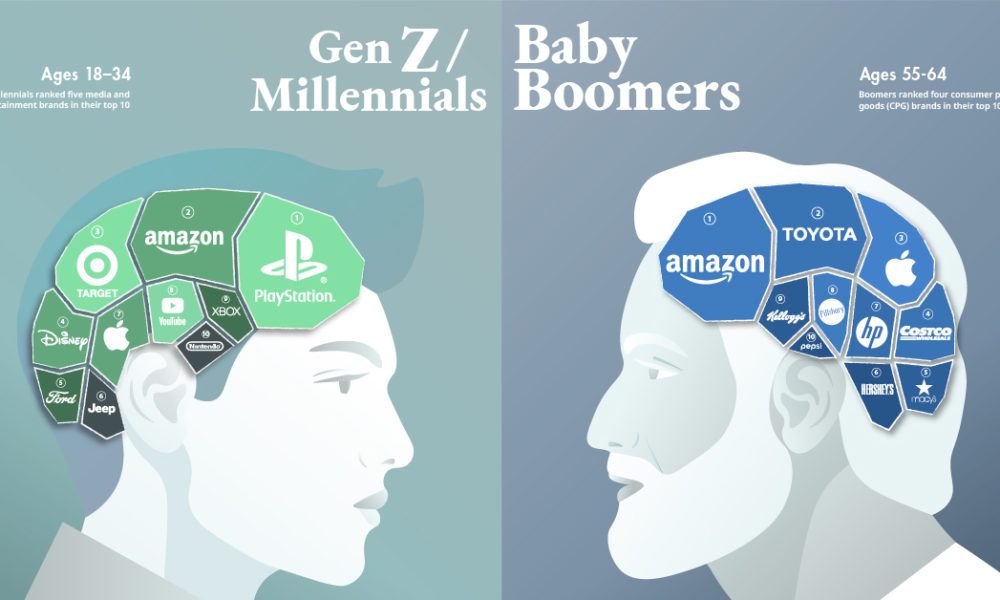Strategies
Why Millennials and Baby Boomers See and Handle Money Differently
The difference between Baby Boomers and Millennials affects their way of handing money.
Published
3 years agoon
By
Mario
Millennials are already dealing with different financial issues than their parents were, such as a higher cost of living and greater student loan debt. However, they also have different spending habits, preferring to pay for activities or “reward themselves.”
In a recent survey of 4,400 Americans, INSIDER and Morning Consult discovered proof of all of those above. 1,207 of the participants identified as millennials (those between the ages of 22 and 37), and 1,472 as baby boomers (those between the ages of 54 and 77), according to the study (237 respondents did not select a generation).
The data demonstrate that the Great Recession harmed all generations, but it put off millennials’ capacity to begin accumulating money. However, they are working hard to catch up, and overall, they are less pessimistic than baby boomers about their financial situation compared to where they anticipated it to be 10 years ago.
Below, we’ve chosen some of the survey’s more insightful findings that provide some insight into how both generations behave financially. The survey’s results are all based on responses from survey participants.
Homeownership

When compared to baby boomers, who make up almost three-quarters of the population, millennials are less likely to own a home—roughly one-third. Compared to less than 25% of boomers, almost half of millennials rent their homes.
Baby boomers had more time to accumulate wealth and purchase a home. Still, this outcome shows that millennials are renting more often and taking years than ever before to buy homes, which is eliminating the starter home.
According to Student Loan Hero, homes are now 39% more costly than they were over 40 years ago. According to a Smart Asset analysis, it might take someone with a median salary nearly ten years to save for a 20% down payment on a median-priced property in some cities where the median home price is so much higher than the median income.
Owning a Car

In comparison to 88% of boomers, little more than three-fourths of millennials possess a car. In the neighborhoods that millennials favor, cars are not necessarily required.
According to Stephanie Taylor for Business Insider, who cited a Regional Studies survey, “millennials find satisfaction in cities, unlike baby boomers and their parents, who went to the suburbs in massive numbers.”
The increasing prices could discourage millennials from purchasing a car even if they do need one. The Bureau of Labor Statistics reports that the cost of new autos grew by 5% between November 2006 and November 2016.
Student Loans
Compared to 61% of boomers, only 36% of millennials have never received college loans. While only a quarter of baby boomers currently have school loans, nearly 45% of millennials have. The poll shows that boomers have paid off their loans at a higher rate than millennials.
According to Student Loan Hero, college tuition has more than doubled since the 1980s, making it more affordable for older generations.
According to a survey by the American Academy of Arts & Sciences, from 2000 to 2012, the number of students who took out student loans increased from roughly 50% to 60% as a result of growing tuition costs.
Retirement

Over half of millennials lack a retirement account, although more than half of boomers have one, showing that they aren’t as equipped for retirement as older generations. Boomers have more money saved than individuals with retirement accounts.
While most boomers have more than $25,000 in savings, most millennials have less than that amount. Compared to only 8% of millennials, nearly half of baby boomers had over $100,000 saved.
The Great Recession has left millennials behind, which is unfortunate given that boomers have generally had much more time to save.
Older millennials have had a harder time saving for retirement because they took the brunt of it, according to a recent Business Insider interview with Jason Dorsey, a consultant, millennial researcher, and president of the Center for Generational Kinetics.
Savings Account
Both millennials and baby boomers have a majority of savings accounts, but much more than half of the millennials have very little than $5,000 in their accounts. Compared to 16% of millennials, nearly 30% of baby boomers had more than $15,000 saved.
This emphasizes the catch-up game that millennials are playing even more. Particularly younger members of the millennial generation are more financially practical and mindful of the possibility of a terrible economy, saving for emergencies and making contributions to retirement accounts.
Groceries
Boomers are more likely than millennials to spend between $100 and $500 per month on groceries. Additionally, more millennials than baby boomers spend less than $100 a month on food, suggesting that they are better at sticking to a budget.
The number of millennials who spend over $500 on food each month is slightly higher. Since they are starting families, millennials may have more mouths to feed. They may also be wealthier, as wealthy millennials sometimes prefer more expensive organic foods as part of a surge in hidden wealth.
Final Note

Since millennials will still have a long way to go before fully understanding the full scope of their economic journey, it would be unlikely to obtain a firm conclusion on who has had its worst.
The present economic surge is adding a new chapter to the story of the Great Recession, which is still painfully fresh in many people’s minds. Millennials might eventually find themselves experiencing a few of the greatest economic circumstances in American history if things stay the same for another ten years.
You may like

Best Problem-Solving Strategies In Business

How to Start Affiliate Marketing Through Amazon

How to Plan A Wedding On A Budget

10 Reasons Why Budgeting Is Important


